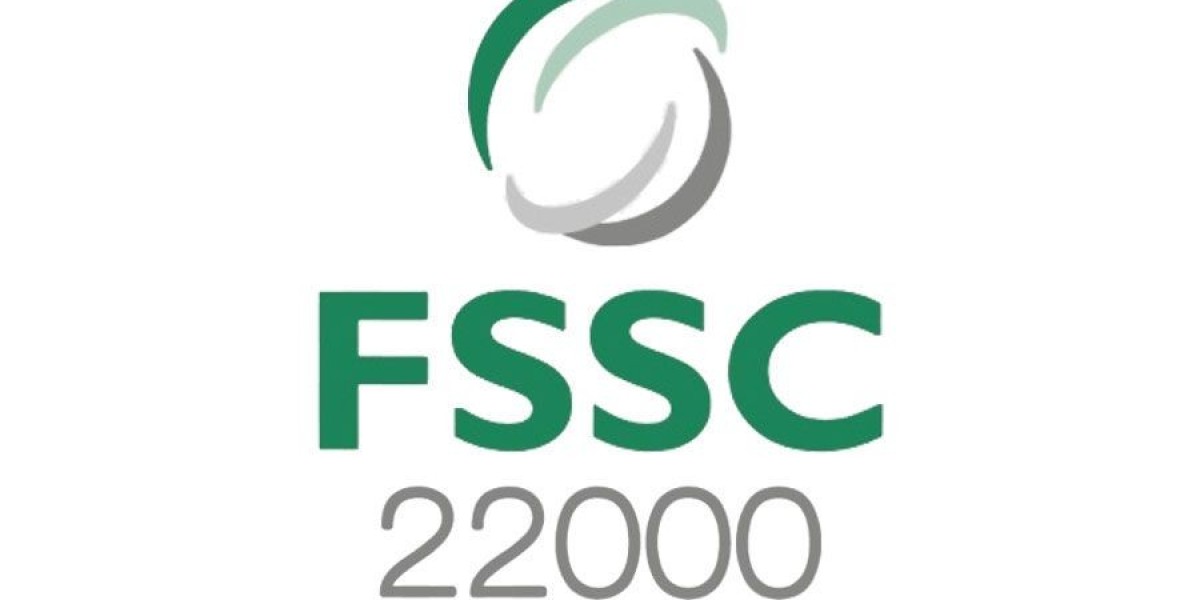Food safety is a top priority for businesses operating in Dubai’s dynamic and highly regulated market. With growing consumer expectations, international trade opportunities, and strict government standards, organizations must adopt globally recognized food safety systems to build trust and remain competitive. One of the most effective ways to achieve this is through FSSC 22000 Certification. This certification provides a robust framework for food safety management and is widely accepted by retailers, manufacturers, and regulators across the world.
In this guide, we’ll walk you through the step-by-step process of FSSC 22000 certification for Dubai companies while highlighting its benefits and how expert consultancy services can help streamline the journey.
Step 1: Understanding FSSC 22000
The Food Safety System Certification (FSSC 22000) is based on ISO 22000 but goes further by including sector-specific prerequisite programs (PRPs) and additional scheme requirements. Recognized by the Global Food Safety Initiative (GFSI), it provides a globally accepted benchmark for food safety management.
For Dubai-based businesses, achieving FSSC 22000 demonstrates compliance with international standards, instills confidence among consumers, and opens doors to global trade partnerships.
Step 2: Conducting a Gap Analysis
The first step toward certification is a gap analysis. This involves assessing your current food safety practices against the requirements of FSSC 22000. Companies often discover gaps in documentation, implementation, or monitoring systems. By identifying these gaps early, you can create an actionable plan to close them before the certification audit.
Professional support from FSSC 22000 consultancy & certification services in Dubai ensures that the gap analysis is comprehensive and practical.
Step 3: Developing and Implementing FSMS
Once gaps are identified, your organization must develop and implement a Food Safety Management System (FSMS) aligned with FSSC 22000 requirements. This system should include:
Hazard analysis and critical control points (HACCP)
Prerequisite programs (PRPs) for your sector
Documented food safety policies and procedures
Training and awareness for employees
Corrective and preventive actions
Consultants specializing in HACCP consultancy & certification services and ISO 22000 consultancy & certification services can help you set up these systems seamlessly.
Step 4: Internal Audit and Management Review
Before applying for certification, your business must conduct an internal audit to evaluate the effectiveness of the FSMS. This ensures that the system is not only compliant on paper but also effective in practice.
A management review follows the audit, where leadership evaluates audit findings, customer feedback, and system performance to ensure continual improvement.
Step 5: Certification Audit
The certification process involves a two-stage audit conducted by an accredited certification body:
Stage 1 Audit (Documentation Review): Evaluates whether your FSMS documentation meets FSSC 22000 requirements.
Stage 2 Audit (Implementation Audit): Assesses the actual implementation and effectiveness of the system across operations.
Upon successful completion, your organization is awarded the FSSC 22000 Certificate, valid for three years with annual surveillance audits.
Benefits for Your Organisation
1. Globally-accepted standard
FSSC 22000 is a leading global certification scheme, with scopes recognized by GFSI and accepted around the world. Its robust FSMS demonstrates your organization’s commitment to meeting regulator, business, and consumer requirements, strengthening trust across the supply chain.
2. Simple transition from ISO 22000
If your company is already ISO 22000 certified, transitioning to FSSC 22000 is straightforward. By implementing the technical specifications for PRPs and additional scheme requirements, you can obtain full GFSI-recognized certification. Combining your ISO 22000 consultancy & certification services with an FSSC 22000 transition audit can save valuable time and expand your market reach.
3. Continuous improvement
Using ISO’s management system approach, FSSC 22000 drives continuous improvements across food safety processes. It fosters standardization, strengthens communication, improves efficiency, and increases transparency throughout the food supply chain. Additionally, it allows easy integration with other management systems such as ISO 9001, ISO 14001, and ISO 45001.
Role of Consultancy & Certification Services in Dubai
Navigating the certification process can be challenging without expert guidance. Partnering with experienced consultants ensures that every step—from gap analysis to final audit—is handled smoothly. In Dubai, organizations can rely on a wide range of consultancy services, including:
FSSC 22000 Consultancy & Certification Services
BRC Consultancy & Certification Services
HALAL Consultancy & Certification Services
HACCP Consultancy & Certification Services
ISO 9001 Consultancy & Certification Services
ISO 14001 Consultancy & Certification Services
ISO 17025 Consultancy & Certification Services
GMP Consultancy & Certification Services
ISO 22716 Consultancy & Certification Services
ISO 13485 Consultancy & Certification Services
These services provide technical expertise, industry knowledge, and audit readiness support to help your company achieve certification efficiently.
Final Thoughts
For Dubai companies, FSSC 22000 certification is more than a compliance requirement—it is a strategic investment that boosts global credibility, operational efficiency, and consumer trust. By following the step-by-step certification process and leveraging professional consultancy support, businesses can unlock new opportunities in the food sector while ensuring the highest standards of food safety.
If you’re looking to strengthen your food safety management system and achieve certification seamlessly, expert consultancy services in Dubai can guide you every step of the way.













